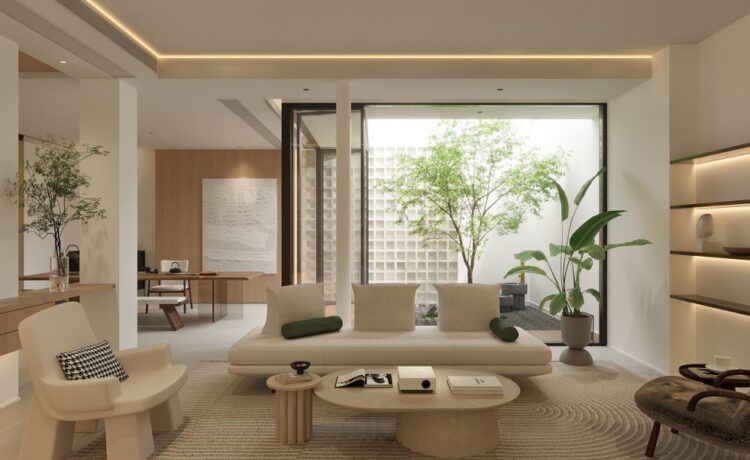Understanding the Concept of Home
The word home holds different meanings for everyone. It is not only a physical structure where people reside, but also an emotional sanctuary that represents comfort, safety, and belonging. Unlike a mere house, which refers to the building itself, home carries a deeper sense of identity and connection. It is where memories are created, where families grow, and where individuals find peace after the challenges of the outside world.
For many, the home also reflects their personal style and values. Through its design, decoration, and atmosphere, a home tells a story about the people who live there. From small details like family photographs to large elements such as architectural style, every feature contributes to making a home unique.
The Importance of Home in Daily Life
A home plays a significant role in shaping lifestyle and wellbeing. It influences emotions, productivity, and relationships. When designed and maintained thoughtfully, a home becomes a source of motivation and positivity.
Key roles of a home in daily life:
-
Emotional stability: A secure home environment provides a sense of peace and comfort, reducing stress.
-
Health and wellness: Clean and well-ventilated homes support physical health, while cosy spaces encourage mental relaxation.
-
Social connections: Homes are where gatherings, celebrations, and bonding moments with loved ones happen.
-
Personal growth: A supportive home environment can inspire creativity, learning, and development.
Home Design and Comfort
Designing a home goes far beyond choosing furniture or colour schemes. It is about creating a space that balances function with comfort. A well-planned home supports the lifestyle of its residents while reflecting their taste.
Elements of a comfortable home:
-
Layout and flow: A practical design makes everyday activities smoother.
-
Lighting: Natural light enhances mood and reduces energy use.
-
Furniture and décor: Pieces should blend aesthetics with usability.
-
Storage: Adequate organisation prevents clutter and helps maintain peace of mind.
-
Outdoor areas: Gardens, patios, or balconies can extend the living space and promote relaxation.
Home as a Reflection of Identity
Every individual’s idea of home is personal. For some, it may mean a cosy flat filled with books and plants. For others, it could be a large house buzzing with family activity. The essence lies in how people shape their living space to align with their identity.
Decor choices, cultural influences, and lifestyle preferences all leave a mark. For example, minimalist interiors may reflect a love for simplicity, while vibrant and eclectic designs may represent creativity and openness. In every case, the home mirrors its owner’s personality.
The Role of Technology in Modern Homes
Technology has transformed homes in remarkable ways. From smart lighting systems to voice-controlled appliances, modern homes offer convenience and efficiency that were unimaginable in the past.
Benefits of technology in the home:
-
Energy efficiency: Smart thermostats and LED systems help reduce energy costs.
-
Safety: Advanced security systems and cameras ensure peace of mind.
-
Convenience: Devices such as smart speakers streamline daily routines.
-
Entertainment: Home theatres and streaming setups enhance leisure time.
Creating a Healthy and Sustainable Home
Sustainability is now a priority in home design and maintenance. A sustainable home is not only eco-friendly but also cost-efficient in the long run. By making conscious choices, homeowners can reduce their environmental impact while creating a healthier living space.
Sustainable home practices:
-
Using energy-efficient appliances
-
Installing solar panels
-
Choosing eco-friendly materials
-
Improving insulation to reduce heating costs
-
Recycling and minimising waste
-
Growing plants indoors to improve air quality
The Psychological Value of Home
The feeling of being “at home” is deeply psychological. It is associated with safety, warmth, and acceptance. Research shows that people who feel emotionally connected to their home report higher levels of happiness and reduced stress. This sense of belonging contributes to resilience and emotional wellbeing.
Home and Family Life
Homes play an irreplaceable role in family dynamics. They are the backdrop for milestones, traditions, and shared experiences. From the first steps of a child to celebrations of achievements, home is the stage where life unfolds.
How homes strengthen family bonds:
-
Providing shared spaces for interaction
-
Encouraging togetherness during meals and activities
-
Offering privacy when needed
-
Serving as a foundation for family traditions
FAQs about Home
What makes a house feel like a home?
A house becomes a home through personal touches, meaningful belongings, and the presence of people you love. Emotional connection is what transforms a space into a place of belonging.
How can I make my home more comfortable?
Focus on lighting, organisation, and personal touches. Adding cosy furniture, warm colours, and personal décor items can create a welcoming atmosphere.
Is technology essential for a modern home?
While not essential, technology enhances convenience and security. However, balance is important so that reliance on gadgets does not overshadow the essence of comfort and human connection.
What are simple ways to create a sustainable home?
Start with energy-efficient bulbs, reduce water waste, recycle regularly, and use eco-friendly cleaning products. Even small actions can contribute to sustainability.
How does home affect mental health?
A clutter-free, safe, and welcoming home environment can reduce anxiety and promote relaxation. Having a space that supports rest and positivity is crucial for mental wellbeing.









